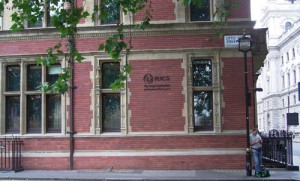 Track2Realty: To improve responsible business practices in the land, real estate and construction industry, the United Nations Global Compact and RICS (Royal Institution of Chartered Surveyors) will jointly develop a best practice toolkit for the sector. The collaboration marks the UN Global Compact’s first initiative to address corporate sustainability in a specific sector following the recent launch of its Post-2015 Business Engagement Architecture.
Track2Realty: To improve responsible business practices in the land, real estate and construction industry, the United Nations Global Compact and RICS (Royal Institution of Chartered Surveyors) will jointly develop a best practice toolkit for the sector. The collaboration marks the UN Global Compact’s first initiative to address corporate sustainability in a specific sector following the recent launch of its Post-2015 Business Engagement Architecture.
The land, real estate and construction sector represents approximately 70 per cent of global wealth. It contributes around one-tenth of total global GDP and represents seven per cent of overall employment.
The sector has substantial sustainability impacts on land development, resource use and waste generation during both the construction and occupational phases. There also exist issues related to human and labour rights during land development and construction, coupled with corruption.
In order to advance responsible and sustainable business practices, and to bring greater coherence and integration to the sector, the two-year project will deliver on three key objectives:
1. Identify key challenges and opportunities for the land, real estate and construction sector relating to the UN Global Compact’s issue areas of human rights, labour, environment and anti-corruption, as well as broader UN goals;
2. Engage UN Global Compact participants from the land, real estate and construction sector, as well as real estate users and stakeholders, to capture existing best practices and scale up sustainability initiatives; and
3. Develop a best practice toolkit built on the Global Compact’s ten principles to help companies in the land, real estate and construction sector and its downstream users tackle these issues and harness significant sustainability opportunities.
The process will be supported by a high-level global steering group of UN Global Compact participants from the areas of real estate, development, finance, investment, construction, research and training, global law firm Latham & Watkins and Karlsruhe Institute of Technology, RICS’ industry-academia partnership university.
At the kick-off meeting of the 15-member steering group, UN Global Compact Executive Director Georg Kell said, “We are pleased to partner with RICS to break ground on the UN Global Compact’s first sectoral initiative. There is tremendous opportunity for the land, real estate sector and construction sector to become a driving force for a more sustainable financial, economic, social and environmental system through collaboration and collective action.”
RICS CEO Sean Tompkins said, “The land, real estate and construction sector has an enormous impact on global economies, the environment and people’s lives. As a UN Global Compact signatory, RICS is fully committed to the advancement of the profession for the public good. Professional and ethical standards are at the very core of our existence.”
“Over the last two years, we have embarked on an ambitious programme to develop standards in partnership with other professional institutions, better reflecting the international and interconnected world that we and our members operate in. We are proud to be working with the UN Global Compact, our project partners and our fellow sectoral signatories and hope that this joint project and the best practice toolkit we will jointly develop will set an example for other industry sectors on how to engage businesses and other stakeholders to achieve greater impact of the Ten Principles in daily business practice.”
RICS South Asia Managing Director Sachin Sandhir said the partnership with the UN Global Compact is an evidence of RICS’ commitment towards embedding professional and ethical best practices within the built environment sectors (real estate, construction and infrastructure).”
“The efforts by RICS to bring about a positive change in the land, property and construction sectors are significant. The partnership means we identify prevent and mitigate any negative impacts on the society and the environment from the business, by incorporating good principles into the appropriate corporate strategies, policies and procedures,” he said.





